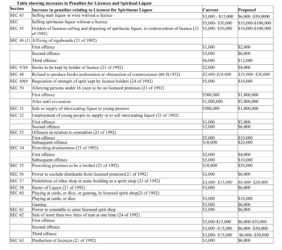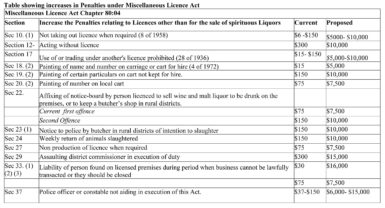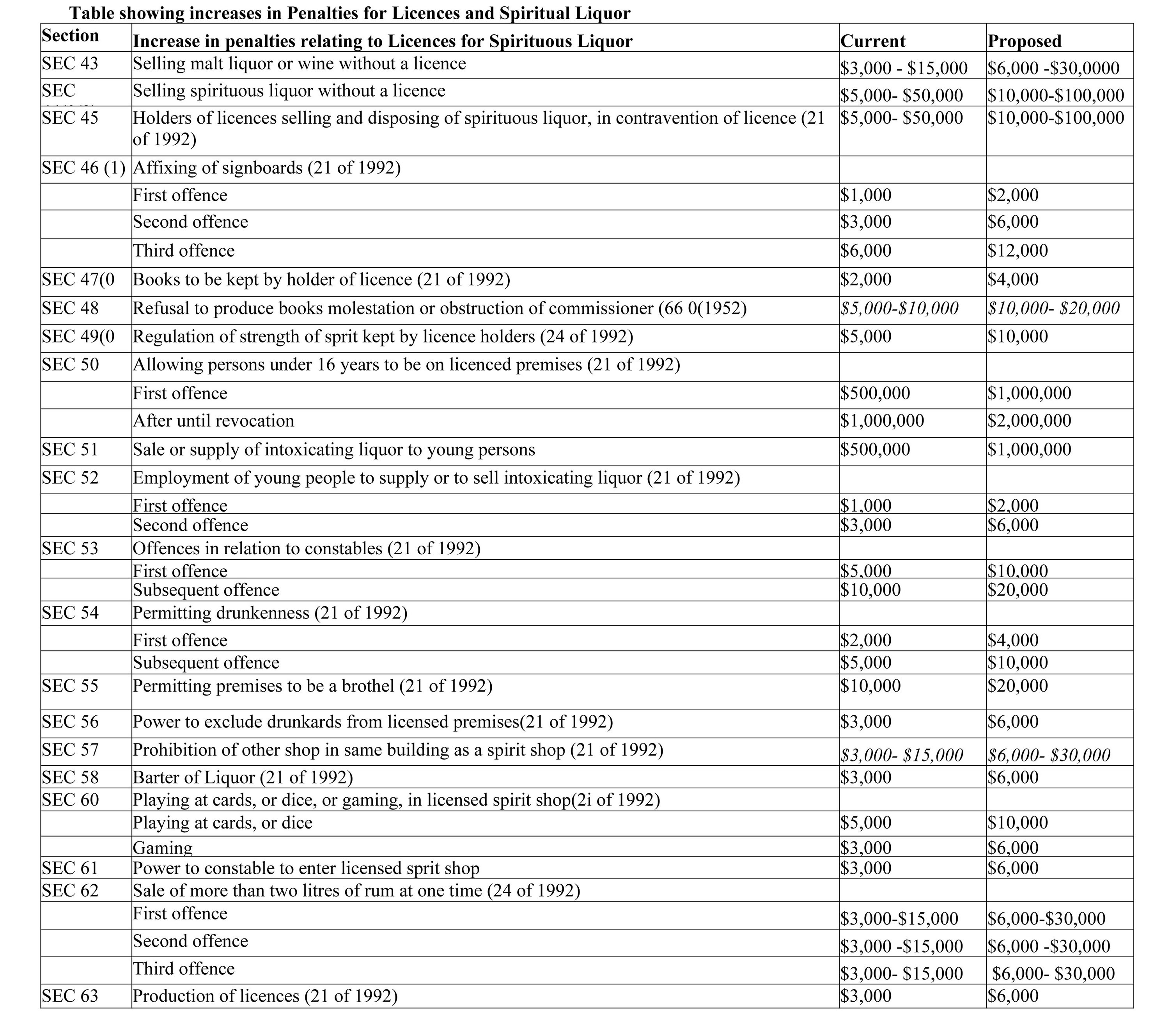The National Assembly yesterday passed two bills to increase fines for failure to abide by licensing regulations in several areas.
Government used its majority to pass the Intoxicating Liquor Licensing (Amendment) Bill and the Miscellaneous Licences (Amendment) Bill 2016 so as to operationalise several measures provided for in the 2017 national budget.
Under the Intoxicating Liquor Licensing (Amendment) Bill, those business which sell alcohol will be required to pay as much as $100,000 if they do so without a licence. This represents a 100% increase from the previous maximum penalty of $50,000.
This represents a 100% increase from the previous maximum penalty of $50,000.
It is one of 23 increases contained in the Bill, which Minister of Finance Winston Jordan championed as a “tax of sin goods.”
Jordan said he did not expect the changes wrought by this Bill to bring any dissention either in the House or within the general population, since economic literature has always seen “sin taxes” as the easiest to implement.
However, Jordan’s prediction proved false when PPP/C Member of Parliament Juan Edghill accused the minister of championing an anti-business measure.
According to Edghill, by implementing penalties on the business rather than taxing the alcohol itself, the government was passing the charges not just to the user of alcohol but to those who do not imbibe as they will also be charged increased prices by the business.
“Tax the alcohol not the business; target the users not the business. If you tax the business, the cost will not just be passed to those who purchase alcohol but to all customers. If you want to tax the sin, tax the sin not the business,” Edghill demanded.
He challenged the government to explain what considerations led to the decision to increase the fees when so many other measures were possible to address the impact alcohol use has on society. According to Edghill, “This is simply increasing fees and penalties for business. It is clear from what we are seeing here that the driving and thinking was let’s have more money. I am suggesting that there be some more thinking, some more analysis not just more measures to raise money.”
 The opposition raised similar concerns about the changes to the Miscellaneous Licences Act. Once the Miscellaneous Licences (Amendment) Bill 2016 comes into force, those failing to secure the necessary license will be required to pay a penalty of no less than $5,000 and no more than $10,000. This offence previously attracted a penalty of no less the $5 and no more than $150. Similarly, anyone who allows someone else to use their licence will no longer have to pay the mere $15 to $50 as that penalty has been increased to $5,000 to $10,000.
The opposition raised similar concerns about the changes to the Miscellaneous Licences Act. Once the Miscellaneous Licences (Amendment) Bill 2016 comes into force, those failing to secure the necessary license will be required to pay a penalty of no less than $5,000 and no more than $10,000. This offence previously attracted a penalty of no less the $5 and no more than $150. Similarly, anyone who allows someone else to use their licence will no longer have to pay the mere $15 to $50 as that penalty has been increased to $5,000 to $10,000.
In total, the bill increases 20 fees and penalties. According to Jordan, some of these fees have not been raised since 1968 and, therefore, do not represent an appropriate deterrent for the criminal action.
These increases, he argued, would account for inflation over that period and relate the fees more closely with the current realities.
This bill was passed by a 33 to 29 majority in the face of dissenting arguments from opposition Members of Parliament Dharamkumar Seeraj, Zulficar Mustapha, Allister Charlie, Vickram Bharrat, Yvonne Pearson and Collin Croal
According to Seeraj, the measures in the Bill suggest that the government has run out of financing options and has chosen to resort to taxation as a means of funding budgetary measures.
Pearson vehemently called on the house to recognise the reality on ground where push cart drivers and persons in the interior with their little trays attached to ATVs would be disadvantaged by such a large increase in penalties.
In response, Jordan called out the opposition MPs for their impassioned defence of those acting illegally. “The passion with which these groups are represented is unbelievable and unbecoming,” the minister said, adding that because it is allowed society is slipping down the slopes of increased lawlessness. “The increased fines would address those who break the laws,” the minister emphasised before once again recommending the Bill to the house.









